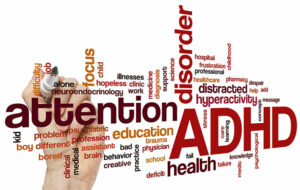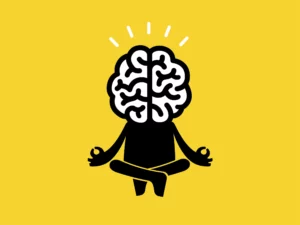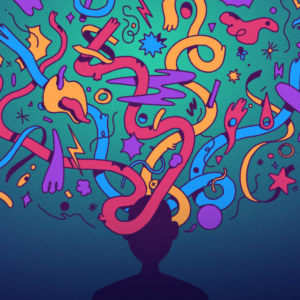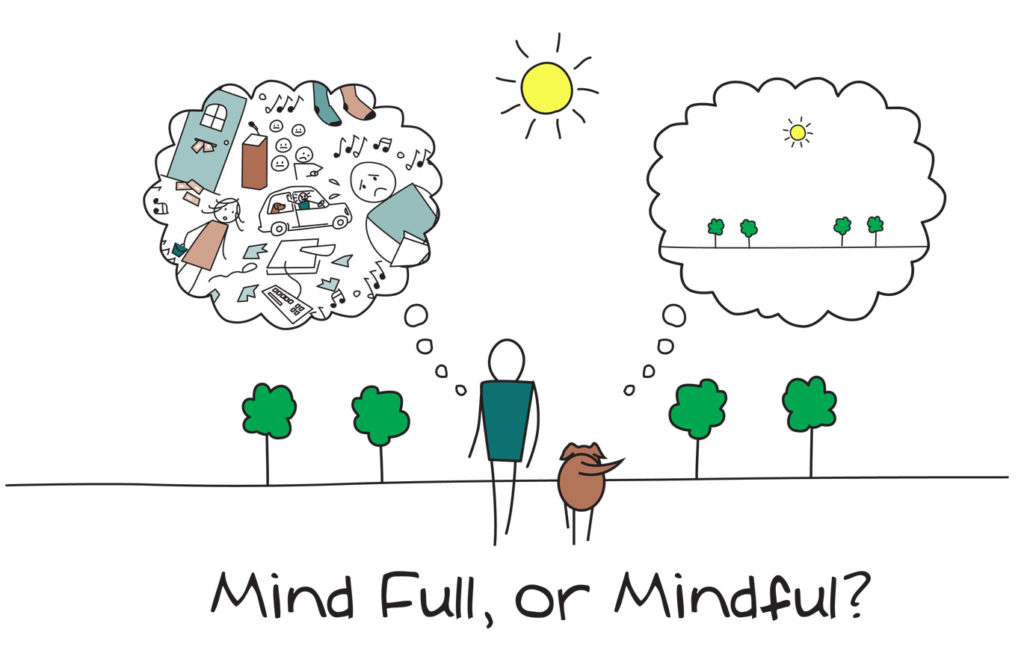When you have ADHD, your mind is always racing. You are constantly thinking about a million things at once, and it feels like you can never get a break. This can be extremely overwhelming and frustrating. It is important to find ways to cope with this chaos and find peace in your life. One way to do this is through mindfulness meditation. In this blog post, we will discuss how mindfulness can help those with ADHD find peace in their lives. We will also provide tips on how to get started with mindfulness meditation!
Contents
Defining ADHD

ADHD stands for Attention Deficit Hyperactivity Disorder. It is a mental disorder that makes it difficult for someone to focus and control their impulses. People with ADHD often feel like they are in a constant state of chaos. Their minds are always racing, and they can never seem to get a break. This can be extremely overwhelming and frustrating. ADHD can also make it difficult to form and maintain relationships.
Defining Mindfulness
Mindfulness is the practice of being present in the moment and accepting things as they are. It is about observing your thoughts and emotions without judgment. When you are mindful, you can focus on one thing at a time and be in the moment. Mindfulness meditation is a type of mindfulness that involves focusing on your breath and letting go of all other thoughts. It is a way to calm your mind and find peace amid chaos.
Benefits of Mindfulness On ADHD

Mindfulness can be extremely beneficial for those with ADHD.
- It can help you to focus on one thing at a time and be in the moment. It can also help you to control your impulses and become more aware of your thoughts and emotions.
- Your mind gets habitual to regaining focus every time you feel like your thoughts getting out of the loop.
- Additionally, mindfulness can help you to form and maintain relationships. It can also help you to cope with stress and anxiety.
- Plenty of research has been conducted to testify that meditation and mindfulness have a significant influence on ADHD-like symptoms. These include:
- improvement in attention span
- flexible thinking
- lower stress levels
- lesser breakdowns and temper tantrums
- promotes productivity
- improves the executive functioning of the brain
- raising dopamine and serotonin levels
- healthy regulation of emotions
- boosting self-esteem
- enhancing the ability to focus
- control and reduce hyperactivity
Whatever route you choose, just remember that there is no wrong way to meditate. The most important thing is to be open-minded and willing to try new things!
Drawbacks Of Meditation For ADHD
There are very few if any drawbacks of mindfulness meditation for those with ADHD. Research has shown that mindfulness can be extremely beneficial for those with ADHD. However, it is important to remember that everyone is different.
- Having to sit with your thoughts and ill effects can be emotionally heavy and a burden for some. This may cause negative feelings of overwhelm or pressure.
- Additionally, some people may find it difficult to sit still for long periods. If this is the case, other types of mindfulness meditation involve movement, that can help you cope.
- It can be difficult to find the time to meditate. Life can be chaotic and busy, and it can be hard to find a moment of peace.
Tips For Effective Practice

If you are interested in trying mindfulness meditation, there are a few things you can do to get started.
- First, find a quiet place where you can sit or lie down comfortably.
- Wear something light and comfortable.
- Start by practicing for a few minutes each day and gradually increase the amount of time you meditate each day.
- Find a comfortable position and focus on your breath. You can simply lie down, or try out some easy yoga poses.
- Allow your thoughts to come and go without judgment. If you find your mind wandering, simply return your focus to your breath.
- Minimize distractions. This means eliminating any external noises. You can do this by turning off electronics, and finding a spot with minimal to no distractions.
- You may also want to try focusing on a certain word or phrase that you repeat to yourself.
- Practice mindfulness meditation for at least 20 minutes each day for best results.
- Continue for as long as you like! There is no right or wrong amount of time to meditate.
- Be patient with yourself and don’t expect perfection. Mindfulness meditation takes practice, so be sure to give yourself time to learn and grow.
- If you find that you are struggling to meditate on your own, there are many resources available to help you. There are plenty of books, articles, websites, and apps that can provide guidance and support. You can also join a mindfulness meditation group or class.
With regular practice, mindfulness meditation can help you find peace amid chaos. It takes practice, but it is a powerful tool that can help those with ADHD find peace in their lives. By learning to be present at the moment and control our thoughts and impulses, we can reduce our symptoms and live happier, more fulfilling lives.
Alternative Methods
While mindfulness meditation is an effective way to control ADHD symptoms, many other methods can be helpful as well.
These include:
Medication
ADHD medications help you manage and reduce a lot of symptoms. Commonly prescribed medications include stimulants such as methylphenidate (Ritalin) and amphetamines (Adderall). Non-stimulant medications, such as atomoxetine (Strattera), are also sometimes useful.
Therapy
Cognitive-behavioral therapy (CBT) is a type of therapy that can help you manage your thoughts and behaviors. It can be an effective treatment for ADHD, particularly when combined with medication. Psychotherapy and family therapy are also sometimes helpful.
Exercise
Regular exercise has been shown to help reduce ADHD symptoms. Exercise can help improve focus, concentration, and energy levels. It can also reduce stress and anxiety.
Dietary Changes
Certain dietary changes have been shown to help manage ADHD symptoms. These include avoiding processed foods, eating more protein, and getting enough omega-fatty acids. Eliminating food additives such as artificial colors and preservatives can also be beneficial.
Herbal Supplements
There is some evidence that certain herbal supplements can help reduce ADHD symptoms. These include ginkgo Biloba, melatonin, and green tea extract. However, it is important to speak with a healthcare professional before taking any supplements.
Yoga
Yoga is a type of exercise that can help reduce stress and improve focus. It involves both physical and mental components, which can be helpful for those with ADHD.
Organizational Tools
There are many different organizational tools that can help you manage your time and tasks. These include planners, to-do lists, alarms, and reminder apps.
Acupuncture
Acupuncture is a type of traditional Chinese medicine that involves placing thin needles on the skin. Some research suggests that it may help reduce ADHD symptoms.
Massage therapy
Massage therapy is a type of bodywork that involves manipulating the soft tissues of the body. It can help reduce stress and improve relaxation.
Aromatherapy
Aromatherapy is the use of essential oils to promote health and well-being. Some research suggests that it may help reduce ADHD symptoms.
Chiropractic care
Chiropractic care is a form of alternative medicine that focuses on the diagnosis and treatment of musculoskeletal disorders. Some research suggests that it may help reduce ADHD symptoms.
Probiotics
Probiotics are live microorganisms that are similar to the ones found in the gut. They can be taken in supplement form or found in certain foods, such as yogurt and sauerkraut. Some research suggests that they may help reduce ADHD symptoms.
Each person with ADHD will respond differently to various treatments. It is important to experiment and find what works best for you. With patience and perseverance, you can find the treatment that helps you live your best life.
Conclusion
ADHD is a complex condition that requires individualized treatment. There is no one-size-fits-all approach to managing symptoms. However, with the right combination of treatments, most people with ADHD can find significant symptom relief. If you are struggling to manage your symptoms, be sure to speak with a healthcare professional about what treatment options may be right for you.
For more information, please contact MantraCare. ADHD is a neurodevelopmental disorder characterized by difficulty in paying attention, hyperactivity, and impulsivity. If you have any queries regarding Online ADHD Counseling experienced therapists at MantraCare can help: Book a trial ADHD therapy session


